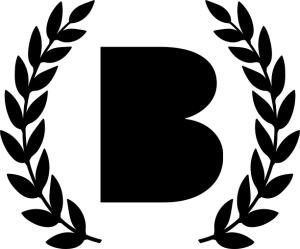The COVID-19 pandemic was the greatest global health crisis in a century. It took the lives of millions, caused the almost complete shutdown of society in a series of lockdowns designed to reduce its spread, and its impact is still being felt today, with millions suffering from long-COVID.
Fortunately, the main threat of COVID-19 has now passed, thanks in no small part to the worldwide roll-out of vaccines designed to minimise its impact. But there were many challenges that came with the vaccine roll-out, principally the fact that millions of people were unconvinced of the vaccine’s safety and the pharmaceutical firms’ motivations and were hugely reluctant to consider having a vaccine.
This is where The Geneva Learning Foundation (TGLF) played a pivotal role. TGLF is a Swiss non-profit that explores research, development, and educational opportunities to solve critical threats to our societies. It believes that the next phase of digital transformation will be through hybrid networks: fusing the digital and the physical. Its programs span a range of disciplines but share a single driving force: to connect and empower thousands of frontline practitioners through shared ideas, peer exercises, and accelerator projects.
TGLF advocates for and creates networks between individuals and groups to help them lead change. When the COVID-19 pandemic hit, the Foundation’s existing human knowledge network connecting health professionals working in routine vaccination services and healthcare provided part of the infrastructure to build the COVID-19 Peer Hub, using the idea management element of Wazoku’s 360_suite of innovation management products.
This platform became the world’s largest platform of immunization professionals from health facilities, districts, and national teams to share ideas and support each other: first to support recovery of routine immunisation, then to roll out COVID-19 vaccines.
The COVID-19 Peer Hub
There were three principal reasons for creating the COVID-19 Peer Hub:
- The pandemic’s impact on healthcare: COVID-19 caused disruption to vaccination services all over the world. WHO estimated that this disruption resulted in over 80 million children under the age of 1 being left vulnerable to vaccine-preventable diseases.
- An urgent need to share ideas and practices in the face of the unknown: The Foundation had been tracking interventions around vaccine delivery since July 2019, particularly around: vaccinating zero dose children and migrant populations; the creation of a Missed Opportunities in Vaccination system to ensure eligible children aren’t overlooked; improving geographic vaccine equity; increasing frequency of services in urban areas with a higher patient volume; and utilizing community engagement techniques.
- Opportunity afforded by the Wazoku platform: The idea management platform donated by Wazoku provided built-in sharing, rating, and collaboration – helping staff connect across levels of the health system and between countries.
“The vital work of the COVID-19 Peer Hub sparked thousands of local projects to keep immunization services afloat in the pandemic. This community’s dedication to knowledge-sharing and helping each other has directly led to increased vaccinations, greater health equity, and better engagement with communities.”
Reda Sadki / President and Co-Founder of The Geneva Learning Foundation
Users of the COVID-19 Peer Hub accessed the Ideas Engine powered by Wazoku, undertook Peer Learning Exercises, and joined the Impact Accelerator to translate shared ideas into concrete actions. Being able to view and vote on ideas from healthcare staff in other countries meant that practices can be crowdsourced – so what worked in one place could be adapted to work elsewhere.
Improving Vaccine Services
The numbers around the COVID-19 Peer Hub were impressive:
- 6,000 immunisation professionals participated in the Peer Hub
- 1,200+ ideas were shared in the first 10 days
- 1/3 of participants had implemented tangible improvements by the end of 2020
- 96 countries and regions were represented
Overall, the COVID-19 Peer Hub improved global vaccine services in the following ways:
- Vaccine hesitancy: 734 Peer Hub participants completed an exercise about hesitancy towards vaccines. This exercise was facilitated by the Wazoku-powered Ideas Engine in which they shared ideas and practices where they had helped a person or a group accept vaccination.
- Vaccination to protect from COVID-19: Peer Hub users from many countries shared their experiences of the introduction of COVID-19 vaccines, stressing the importance of sub-national capabilities as being key to a vaccine program.
- Missed Opportunities in Vaccination (MOV): DRC Peer Hub team-leader, Dr Franck Monga, used only local resources to set up a system to follow up, identify, and offer vaccinations to all potential zero-dose children (those who had not received any basic vaccinations) in his district. Dr Monga drew on ideas from community health workers, nurses, and doctors in Cameroon, Indonesia, Nigeria, and Pakistan – and he similarly helped peers improve their work too.
0




